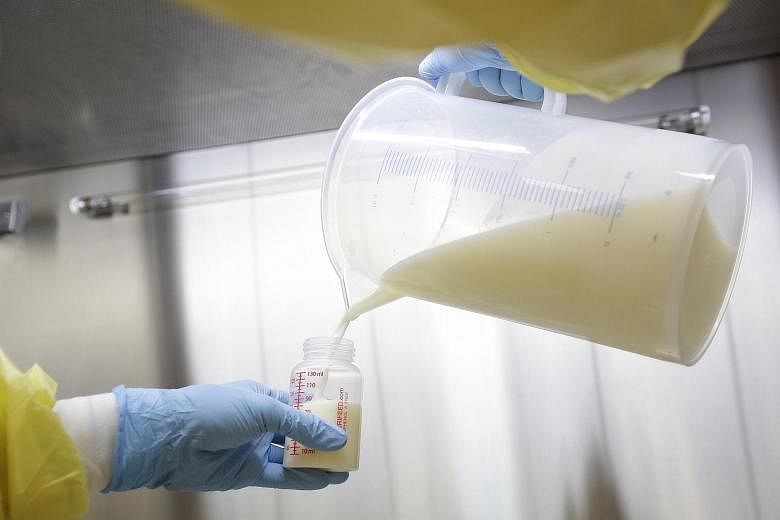Singapore's first milk bank may have just been launched, but informal efforts to help babies in need have been running for years.
For instance, there are Facebook groups where new mothers offer to give away excess milk to those who need it more.
Some even list frozen breast milk for sale on online shopping platforms such as Carousell.
One of those who has offered extra milk to a needy stranger is Ms Celine Wah, who gave birth to a boy in February.
Like many other mothers with milk to spare, she put up a post on the Facebook group called Human Milk 4 Human Babies Singapore, which has more than 5,000 members.
Ms Wah told The Straits Times that she donates for two reasons. "First, I ran out of freezer space," said the 27-year-old, who works as a customer service executive. "Second, I know that there are many mummies out there who are desperate for breast milk, so I hope to help some babies."
Typically, mothers in the group post about how much milk they have to give, as well as the diet they are on and whether or not they are smokers or have any health problems. The group is part of a global "milksharing" network that aims to link women who have extra breast milk with babies whose mothers cannot provide them with enough. It does not screen either donors or recipients, and encourages members to make decisions based on an informed choice.
However, Dr Chua Mei Chien, who heads KK Women's and Children's Hospital's (KKH) neonatology department, warned that such arrangements have their risks.
"The donors are not screened and we cannot guarantee that the methods of milk collection adhere to certain hygiene standards," she said. "So, there's a risk of transmission of diseases through the process of informal milk-sharing."
KKH's milk bank pasteurises all donated milk and checks for bacterial contamination before it is dispensed. However, it is available only to premature or sick babies whose mothers cannot provide enough breast milk.
Linette Lai

